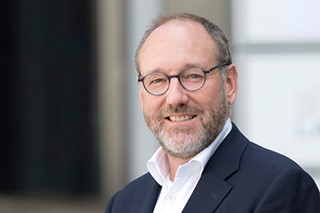Ongoing digitization in every sector of the economy, in all spheres of life is creating fields of conflict between exponentially growing amounts of data being collected, on the one hand, and increasing need for privacy, secure communication and sovereignty over data being commercialized, on the other. Looking at health-related information in particular, integrating medical data from diverse sources holds great potential for medical research, health care and the life sciences, but it also creates specific challenges concerning the patients' personal rights and property rights over their data. By developing the Medical Data Space, Fraunhofer Gesellschaft hopes to make a significant, lasting contribution to reaping the benefits of digitization in the medical field through innovative IT solutions for secure exchange of medical data across institutional boundaries. In line with the aims of preventive, personalized, precise and participative medical care ("4p medicine"), this communication, which will conform to existing rules and standards, focuses on the patients.
Contact Press / Media
Prof. Dr. Thomas Berlage
Head Research Department Life Science Informatics
Fraunhofer Institute for Applied Information Technology FIT
Schloss Birlinghoven
53754 Sankt Augustin, Germany
Phone +49 2241 143-800


